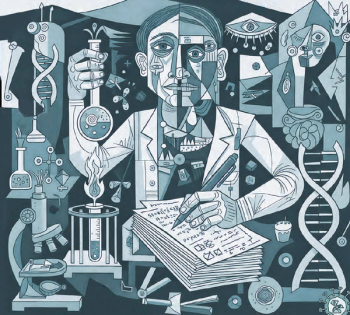
Prognostic Score Predicts COVID-19 Severity
Looking at certain characteristics in a blood test can help forecast patients’ course and inform clinicians’ determination on the course of treatment.
Using a blood test, researchers have developed a measurement to predict the severity for COVID-19 for patients.
The measurement, called the Dublin-Boston score, is designed to enable clinicians to make more informed decisions when identifying patients who may benefit from therapies, such as steroids, and admission to intensive care units.
A study led by researchers at RCSI University of Medicine and Health Sciences published their findings
The Dublin-Boston score can now predict how severe the infection will be on day 7 after measuring the patient's blood for the first 4 days.
The blood test works by measuring the levels of two molecules that send messages to the body's immune system and control inflammation. One of these molecules, interleukin (IL)-6, is pro-inflammatory, and IL-10, is anti-inflammatory. The levels of both are altered in severe COVID-19 patients.
Based on the changes in the ratio of these 2 molecules over time, the researchers developed a point system where each 1-point increase was associated with a 5.6 times increased odds for a more severe outcome.
"The Dublin-Boston score is easily calculated and can be applied to all hospitalized COVID-19 patients," RCSI Professor of Medicine Gerry McElvaney, the study's senior author and a consultant in Beaumont Hospital, said.
“Our findings are consistent with a prior report investigating the use of cytokine ratios in a small cohort of patients with the Systemic Inflammatory Response Syndrome,” the investigators wrote. “The link to clinical deterioration is similarly intuitive.”
Newsletter
Stay ahead of emerging infectious disease threats with expert insights and breaking research. Subscribe now to get updates delivered straight to your inbox.



































































































































